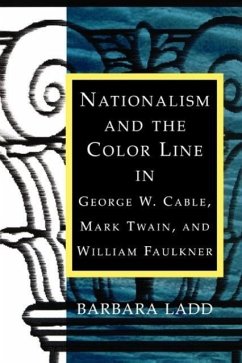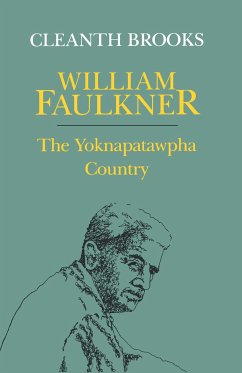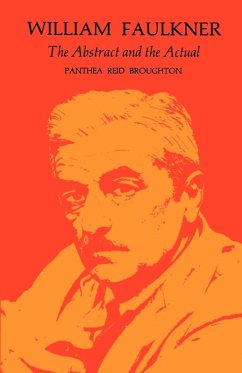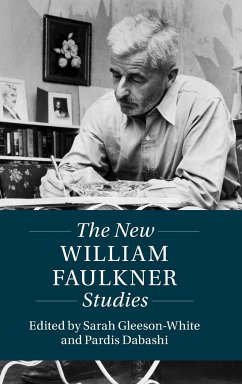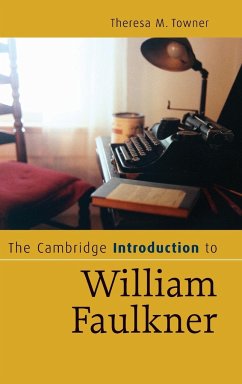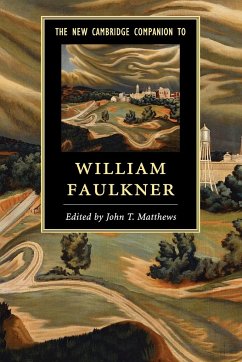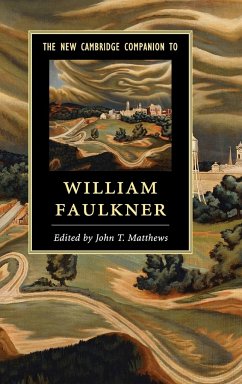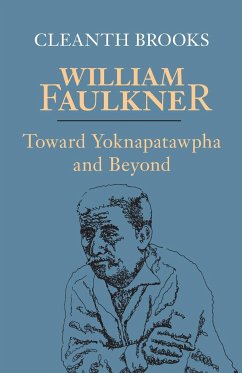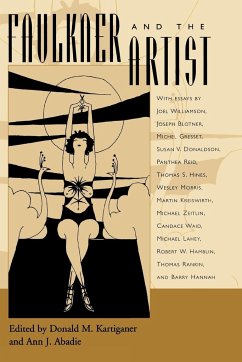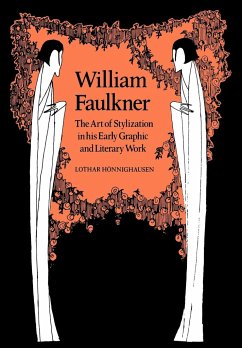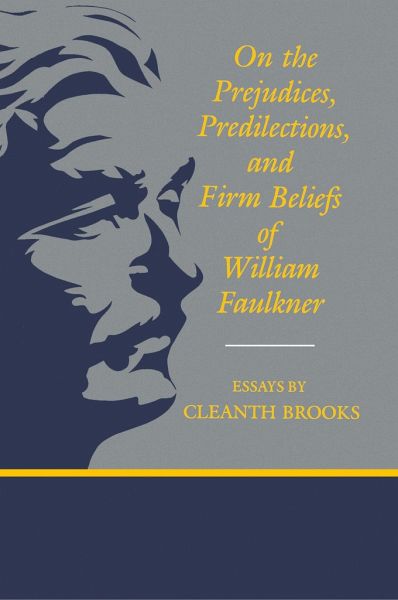
On the Prejudices, Predilections, and Firm Beliefs of William Faulkner
Versandkostenfrei!
Versandfertig in 1-2 Wochen
31,99 €
inkl. MwSt.

PAYBACK Punkte
16 °P sammeln!
It seems appropriate, if not inevitable, that one of our best critics should be the foremost authority on one of our best novelists. Cleanth Brooks, the author of three seminal studies of William Faulkner, was a serious student of that master craftsman's fiction for more than four decades. In this collection, Brooks considers many of the important characteristics of Faulkner's work. He focuses more specifically than he has in the past on certain questions and in some instances offers rebuttals to what he considers unfair assessments of Faulkner. These essays are vintage Brooks. The prose is, a...
It seems appropriate, if not inevitable, that one of our best critics should be the foremost authority on one of our best novelists. Cleanth Brooks, the author of three seminal studies of William Faulkner, was a serious student of that master craftsman's fiction for more than four decades. In this collection, Brooks considers many of the important characteristics of Faulkner's work. He focuses more specifically than he has in the past on certain questions and in some instances offers rebuttals to what he considers unfair assessments of Faulkner. These essays are vintage Brooks. The prose is, as always, felicitous, the manner modest and winning, the thought pertinent and rigorous. Despite the thematic diversity of the essays, the emphasis is ultimately the same: reading and rereading the novels of William Faulkner is a continuing pleasure and an enduring challenge.





